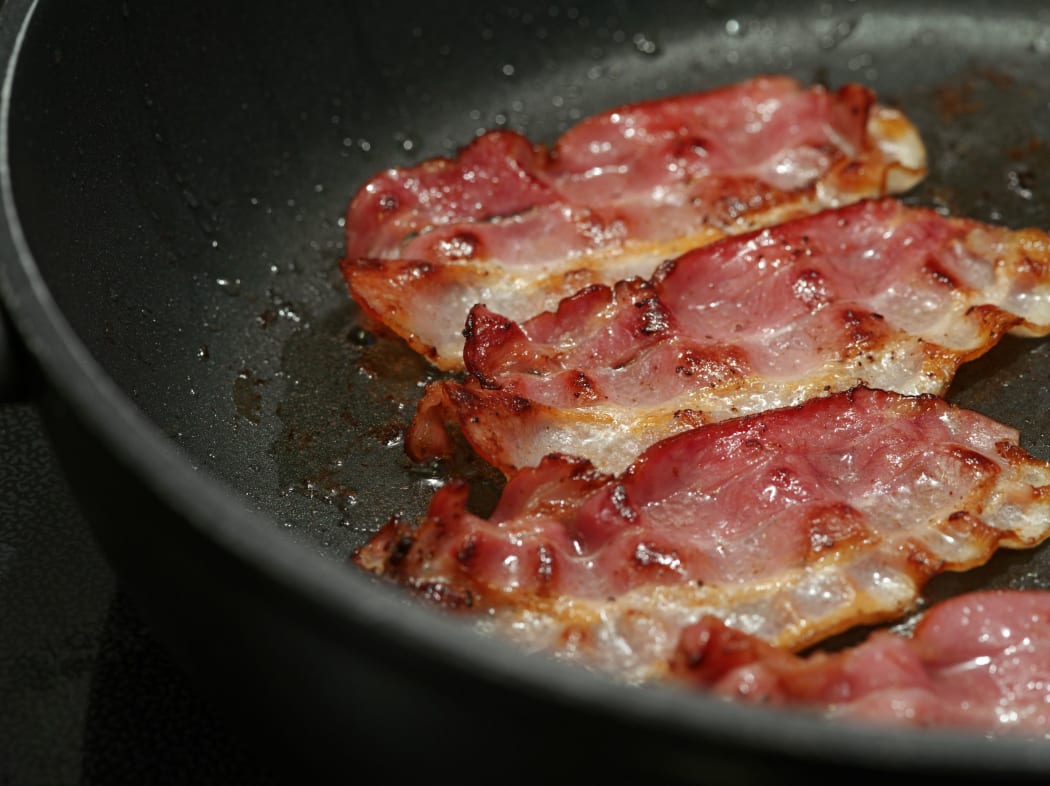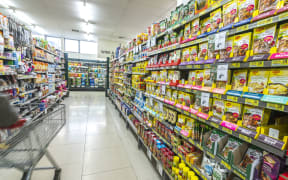MPs are being criticised for watering down a member's bill requiring whole foods to have labels on them stating where they came from.

Much of the bacon and ham in New Zealand is from imported meat. Photo: 123RF
It would require producers to name a food's country of origin, to prevent consumers being misled and to promote New Zealand products.
But changes to the Consumers' Right to Know (Country of Origin of Food) Bill mean foods like bacon - most of which is marketed as a New Zealand product, but actually made from imported pork - won't be included.
The bill's been stripped down to its simplest form, which is a move the committee chair, National MP David Bennett, said has the support of all political parties.
"It gives the opportunity for future governments to add to it, they can always change the legislation and add more products," he said.
"There are some opportunities for a bit of flexibility going forward - but essentially it is a starting point legislation."
But that has seriously frustrated industry groups which have advocated for clearer food labelling for years.
New Zealand Pork's industry spokesperson Ian Carter said New Zealand is trailing behind its major trading partners on this already.
He said you only need look at bacon to see why New Zealand needs the proposed law.
"Sixty percent of pig meat consumed in New Zealand is imported now," he said. "On top of that, most of your processed products. We believe it could be something like 85 percent of your bacon and ham is imported meat."
"And of that, 95 percent of it is produced in countries that wouldn't meet New Zealand's standards of farming. It wouldn't be legally allowed to be farmed in that method under New Zealand's animal welfare laws.
That worries the bill's sponsor, Green MP Gareth Hughes.
"It's a bit odd for me as a vegetarian to be advocating for the New Zealand pork industry, but I think they have a really fair case," he said.
"As we've slowly ratcheted up our animal welfare standards in the pork industry, their sales have declined and we're seeing a massive increase in imports of really low quality animal welfare pork. That's a double whammy for them."
Mr Hughes said consumers are overwhelmingly in favour of mandatory labelling.
"People want to buy New Zealand products because they're the best products. But if they don't have that information, how are they meant to make that choice?"
Consumer New Zealand's chief executive, Sue Chetwin, has the figures to back that up.
She said 71 percent of people backed country-of-origin labelling on food in a nationally representative survey of consumers last year. 65 percent also said they always look for New Zealand products, with a third of them reporting they couldn't always find them.
Ms Chetwin says the current voluntary labelling scheme doesn't work and the Bill as it stands now won't do much to alter that.
"We want it on fresh fruit and vegetables, we want it on meat, we want it on packaged and un-packaged food, we want it to be across nuts, and all of the foods that are just single products basically," she said.
The original member's bill had all of these components, but Ms Chetwin said the committee has narrowed it so much it's now almost meaningless.
And Labour is suddenly indicating it's not happy with the committee process, and is looking to make changes to the bill at its next opportunity.
A spokesperson for the Consumer Affairs Minister Kris Faafoi said positive progress was not being made on the bill at select committee "and therefore we will be making amendments to the bill via a SOP."
Ms Chetwin doesn't think that's the best way to make a change to the new law, but said it's better than nothing.
"If that was what needed to happen then we think that it should happen in this case because in some respects I think the select committee has been hijacked," she said.



